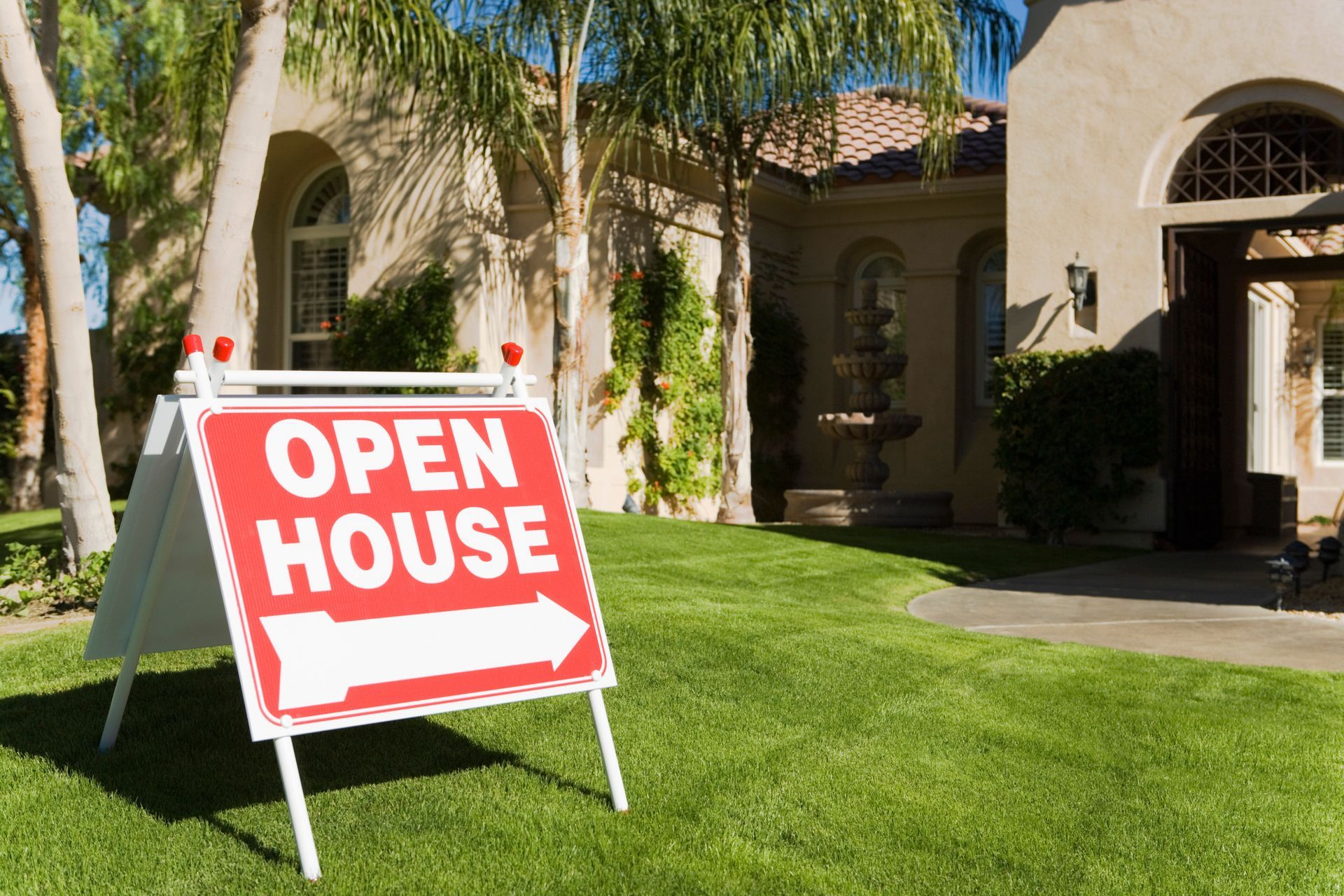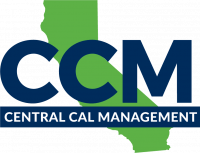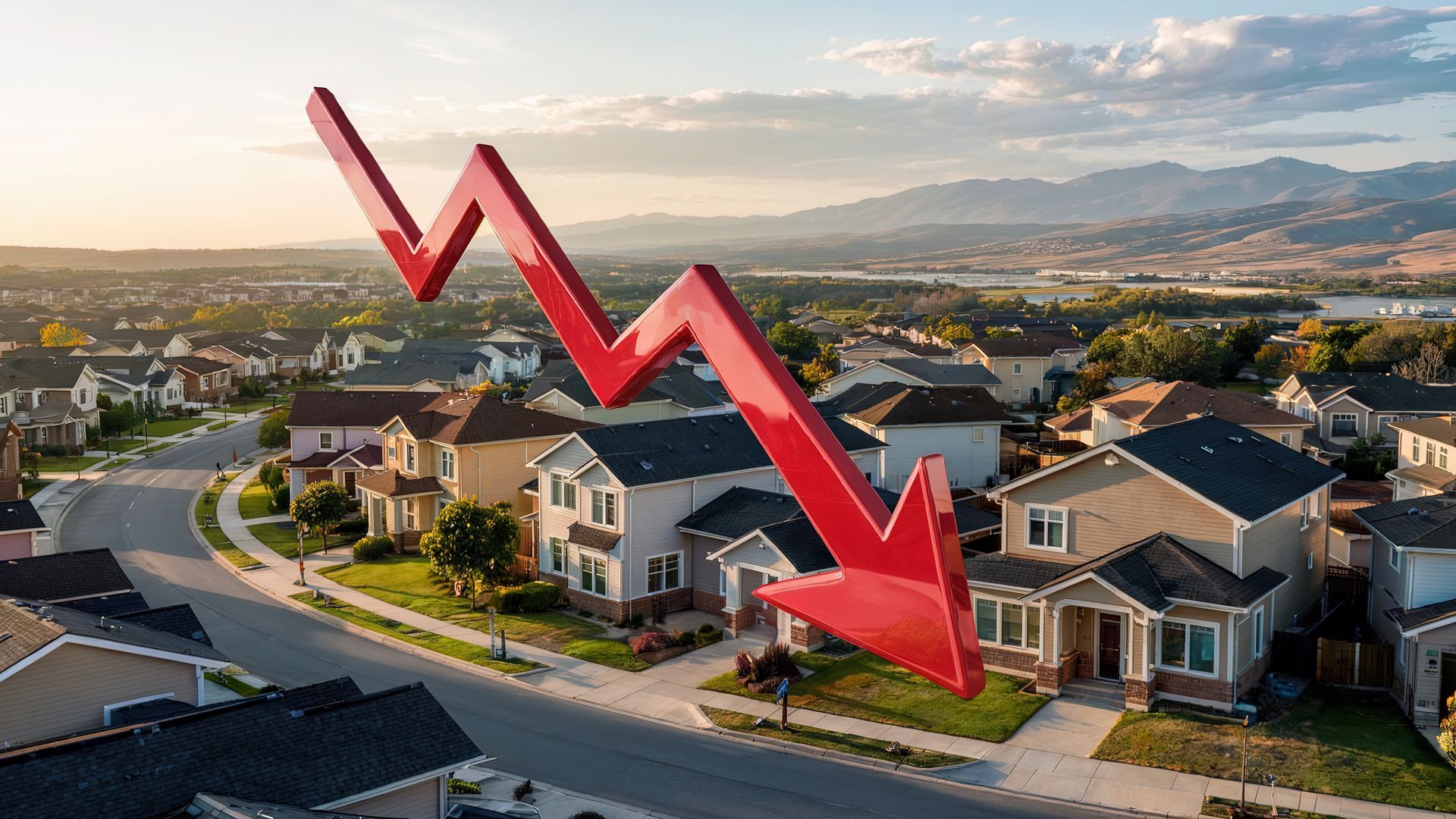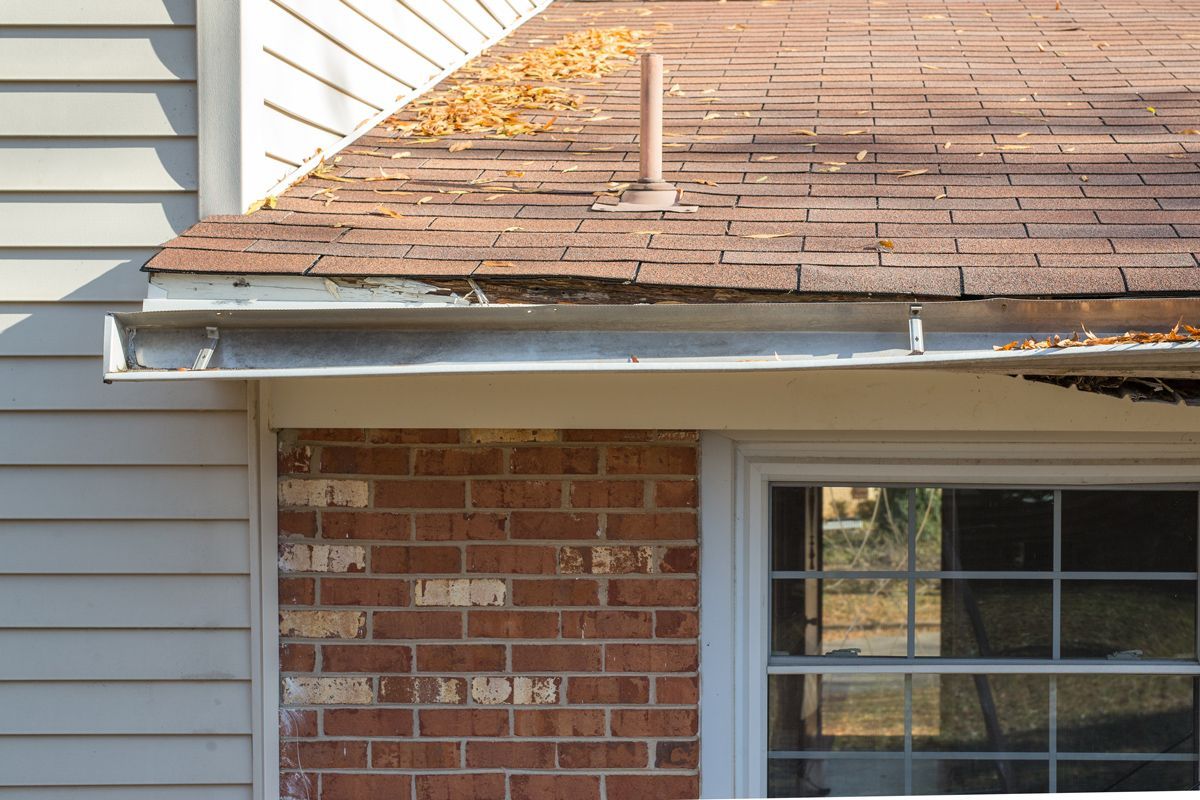
The Role of Open Houses in Real Estate
What Is An Open House And How Does It Work?
When it comes to selling a house promptly and efficiently, real estate agents wield a powerful tool - the open house. In this article, we will explore how real estate professionals strategically hold an open house to not only showcase properties but also to expedite the selling process, making it faster and easier for both sellers and buyers.
The Power of Open Houses
Open houses are more than just opportunities for potential buyers to tour a property; they are strategic events orchestrated by agents to create a sense of urgency and excitement. These gatherings serve as a crucial catalyst in accelerating the journey from listing to closing to sell your home.
- Direct Buyer Interaction:
- Open houses may provide a unique opportunity for potential buyers to go to an open house to experience a property firsthand.
- Direct interaction allows buyers to visualize themselves in the space and fosters a sense of urgency, often leading to quicker decision-making.
- Creating Buzz and Interest:
- Well-planned open houses generate excitement and interest in the property.
- Effective marketing strategies, both online and offline, contribute to creating a buzz, attracting a diverse pool of potential buyers, and increasing the chances of a faster sale.
- Showcasing Properties Effectively:
- Open houses allow agents to showcase properties in the best possible light against the real estate market.
- Professional staging, coupled with personalized tours and presentations, enhances the visual appeal of the home, making it more attractive to potential buyers and expediting the selling process.
Strategic Planning for Open Houses
Behind every successful real estate open house event is meticulous planning. Carefully plan the timing, presentation, and atmosphere make these events not just informative but also highly appealing. Their goal is to transform a casual visit into a serious consideration to buy.
- Timing and Scheduling:
- Agents select the optimal time and day for the open house is crucial. Consider local market trends, potential buyer demographics, and community events to maximize attendance.
- Realtors know strategical scheduling of the open house to coincide with high buyer activity periods can create a sense of urgency and increase the likelihood of attracting serious buyers to showings.
- Presentation and Staging: Meticulous presentation and staging of the property are essential. Collaboration with staging professionals create an inviting atmosphere that highlights the features and potential of the home for sale.
- Marketing and Promotion:
- Realtors utilize both online and offline channels, including social media, real estate websites, local publications, and signage.
- They leverage technology, such as virtual tours and high-quality photography, to create engaging promotional materials that showcase the property's unique selling points and encourage attendance.
Generating Buzz for Open Houses
Before they host an open house, creating a buzz around open houses is an art form. They develop a comprehensive marketing strategy to generate buzz and attract a diverse audience. Agents employ various strategies to sell a home, from targeted online promotions to local advertising, generating excitement that translates into foot traffic. The more potential buyers there are, the higher the chances of finding the right match quickly.
Active Engagement During Open Houses
An open house can also go beyond showcasing a property; they involve active engagement with people looking to buy a home. Real estate agents use their interpersonal skills to understand buyer needs, address questions, and create a positive impression. This engagement is a key factor in expediting the selling process.
Agents employ various strategies to actively engage with visitors during open houses, creating a positive and interactive experience. Here's how they do it:
- Welcoming Atmosphere:
- Greet visitors warmly as they enter the property, creating a friendly and inviting atmosphere.
- Offer refreshments and encourage guests to feel comfortable and at ease.
- Personalized Tours:
- Provide personalized tours, highlighting key features and addressing specific interests of shoppers.
- Tailor the tour to align with the needs and preferences of each visitor, showcasing the property in a way that resonates with them.
- Interactive Q&A Sessions:
- Host question and answer sessions to address any queries or concerns home buyers may have.
- Proactively seek feedback and offer detailed information about the property, neighborhood, and the home-selling process.
- Highlighting Unique Features:
- Emphasize the unique and standout features of the property, explaining how they add value.
- Share interesting stories or historical details about the home to create a connection with visitors.
- Distribute Informational Materials:
- Provide brochures, pamphlets, or information packets that include details about the property, neighborhood, and local amenities.
- Ensure these materials are visually appealing and informative.
- Technology Integration:
- Utilize technology, such as tablets or interactive displays, to showcase additional information, virtual tours, or multimedia presentations.
- Offer digital floor plans or online resources for home buyers to explore and view the property virtually.
- Create a Lifestyle Experience:
- Help people envision the lifestyle associated with the property.
- Share insights about the community, schools, parks, and nearby attractions that contribute to the overall living experience.
- Networking Opportunities:
- Facilitate networking among buyers, allowing them to share thoughts and impressions.
- Encourage social interaction by organizing casual gatherings or providing communal spaces for discussion.
- Follow-Up Communication:
- Collect contact information and express genuine interest in potential' needs.
- Follow up after the open house with personalized messages, additional information, or to answer any lingering questions.
- Provide Comparative Market Insights:
- Offer insights into comparable properties in the area, helping shoppers understand the market value and advantages of the showcased property.
- Community Expertise:
- Demonstrate knowledge about the local community, schools, amenities, and upcoming developments.
- Position oneself as a valuable resource for information beyond the property itself.
By actively engaging with visitors during open houses through these strategies, listing agents enhance the overall experience, making it more memorable and increasing the likelihood of a successful and prompt sale.
Showcasing Homes Effectively: Why an Open House Works
When they host open houses, real estate agents showcase homes in the best possible light. From professional staging to highlighting unique features, the goal is to make a lasting impression on buyers. A well-presented home not only sells faster but often at a better price.
Realtors possess a distinct advantage over homeowners when it comes to showcasing homes effectively. Their expertise lies in a comprehensive understanding of market dynamics, buyer preferences, and the art of presentation. Unlike homeowners, agents bring a professional touch to property showcasing through collaboration with staging professionals. They have a keen eye for highlighting a home's unique features and strategically positioning furniture and decor to enhance visual appeal. Agents understand the importance of depersonalizing spaces, allowing potential buyers to envision themselves in the property.
Utilizing Technology in Open House in Real Estate Strategies
Real estate agents leverage technology strategically in their open house strategies to enhance the overall experience for potential buyers and streamline the selling process. Here's how they utilize technology:
- Virtual Tours: Incorporating virtual tours, allowing visitors to explore the property remotely and gain a comprehensive view of its layout and features.
- Online Listings and Platforms: Agents use various online listing platforms and real estate websites to showcase properties, ensuring a broader reach to people searching for homes online.
- High-Quality Photography: Utilizing professional photography enhances the visual appeal of online listings, making the property more enticing.
- Interactive Displays: During open houses, agents may use interactive displays or tablets to provide additional information about the property, neighborhood, or financing options.
- Social Media Marketing: Agents leverage social media platforms for targeted marketing, creating buzz around open houses and reaching a wider audience.
- Digital Floor Plans: Providing digital floor plans allows people to visualize the property's layout and understand the spatial arrangement before visiting.
- Electronic Sign-In and Feedback Systems: Implementing electronic sign-in systems streamlines the registration process for visitors, and feedback systems allow for prompt insights into impressions.
- Email Marketing Campaigns: Agents use email campaigns to follow up with open house attendees, providing additional information, addressing questions, and nurturing potential leads.
- Augmented Reality (AR) and Virtual Reality (VR): In some cases, agents may explore AR and VR technologies to create immersive experiences, allowing a virtual walk through a property.
By integrating these technological tools into their open house strategies, agents enhance engagement, reach a broader audience, and create a more efficient and enjoyable experience for both buyers and sellers.
Encouraging & Handling Offers Promptly
Real estate agents employ various strategies to encourage open house viewers to make an offer and ensure a prompt and efficient handling of offers. Here's how they do it:
- Create a Sense of Urgency
- Effective Communication
- Provide Comparative Market Analysis (CMA)
- Follow-Up After the Open House
- Highlighting Competitive Advantages
When offers come in during or after an open house, real estate agents are quick to respond. Here are ways they aid in handling offers to help the seller:
- Immediate Response
- Negotiation Skills
- Transaction Management
- Communication with Sellers
By employing these strategies, agents not only encourage people to make offers but also ensure a prompt and efficient handling of those offers, contributing to a successful and expedited selling process.
Building Anticipation for Future Open House Showings
Successful real estate agents don't just focus on individual open houses; they build anticipation for future events. By maintaining momentum and interest, they create a cycle of continuous success, contributing to a steady flow of shoppers and faster home sales.
Client Testimonials on Open House Success for Sellers
Real-life success stories speak volumes about the effectiveness of open houses. Clients who experienced swift home sales often attribute their success to the strategic approach of their listing agents. Positive testimonials further enhance an agent's reputation and success rate.
Conclusion: Realtors and Open Houses Sell Homes
In conclusion, the role of open houses in the real estate selling process is undeniable. Real estate agents, through strategic planning, active engagement, and leveraging technology, make open houses a powerful tool for expediting home sales. Sellers looking for a faster and easier selling experience would do well to recognize and embrace the potential of this invaluable strategy and agree to hold open houses.
Open House FAQs
How do open houses actually contribute to selling my home faster?
Open houses serve as strategic marketing events where potential buyers can experience your home in person. This direct interaction, coupled with the sense of urgency created during these events, often leads to quicker decisions and, ultimately, faster home sales.
What steps do real estate agents take to ensure my open house is successful for the seller?
Agents meticulously plan open houses, considering factors such as timing, presentation, and creating a welcoming atmosphere. They leverage various marketing strategies, both online and offline, to generate buzz and attract a diverse pool of potential buyers.
Are open houses still relevant in the digital age, or should I focus more on online marketing?
Absolutely, open houses remain relevant. While online marketing is crucial, open houses provide a unique opportunity for buyers to physically connect with a property. Real estate agents often integrate technology, such as virtual tours and online promotions, to complement the traditional open house experience.
How can I ensure my home is showcased effectively during an open house?
Your real estate agent will work with you to professionally stage your home, highlighting its unique features and creating an appealing environment. Clearing clutter, enhancing curb appeal, and maximizing natural light are some of the techniques used to ensure your home makes a lasting impression on potential buyers.
What happens if I receive an offer during or after an open house, and how quickly can the selling process progress?
If you receive an offer, your listing agent will guide you through the negotiation process. Once an agreement is reached, the selling process can move swiftly. The efficiency of your agent in handling offers and managing the transaction plays a crucial role in ensuring a smooth and quick transition from listing to closing.










